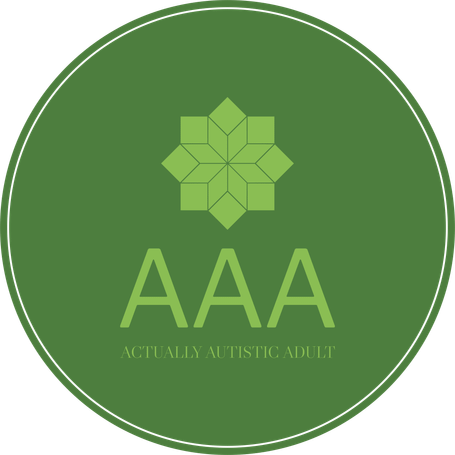Accommodating Society
Written in January 2023
When we talk about making reasonable adjustments it's within the context of proving an “out” or a “free pass” on certain things that the majority of people are required and expected to do in the workplace. For example, someone who struggles with busy public transport may require the reasonable adjustment of having flexible or altered start and finish times at work. Someone with children might need the same adjustment in order to cover childcare, and in the majority of cases this adjustment is made to allow the employee to remain in work.
An autistic person might need the adjustment of not being required to socialise outside work hours, or to be allowed not to take part in off-site, full day training courses (due to the added burden of extra travel, provision of food [many of us have GI issues or other autism-related issues with our diet], being in an unfamiliar environment for a long time and participating in those excruciating ice-breakers and team-building tasks).
There are many other adjustments that autistic, neurodivergent or physically disabled people need in workplaces (and in other public spaces) in order to allow them to participate in society and to meet needs such as getting groceries, having a bank account, getting exercise and accessing healthcare. Participating in leisure activities and meeting friends/family, pursuing hobbies and interests and generally living a life in this modern world also requires adjustments and accommodations here and there.
Ableist people can resent those living with disabilities and with neurodevelopmental differences because they see these adjustments as “special treatment” that they don't get. I don't have a lot of time for this attitude, especially as it's easily explainable (it's not special treatment, it is enabling everyone to participate), and it's wilful ignorance.
There is one thing that many people are unaware of, ableist or not, and that is that us disabled, neurodivergent or otherwise “different” folk are, and have been, making reasonable and often very unreasonable adjustments to accommodate society. We have to make eye contact even when it is detrimental to us, because most people out there need eye contact in order to be able to interact with other people effectively.
We might detest being touched or hugged, but we are expected to accommodate those people (the majority) who require physical contact with others in order to feel included in relationships and interactions with other people. We have to suppress stims in order to respect the comfort levels of other people who are unable to function in the presence of something they do not understand or accept, and we have to communicate in ways that are unworkable for us so that we do not upset others, or make them feel insecure (asking questions for clarity is not an acceptable act in wider society, as it carries the inherent but secret meaning that the act of questioning is to undermine an individual's social status, or their knowledge).
In order for us to participate in society and have a life that we can live, we make unreasonable adjustments to our behaviour, and suppress our needs and character to survive and pass in the outside world. When we need someone, or an entity, to make adjustments to enable this participation it is not “attention seeking” or “special treatment”, it is just us needing to overcome the exclusion that we face by virtue of who and how we are.
If we could stop making unreasonable adjustments to accommodate wider society, people might start to understand, but the reality is that we're not safe if we do so. What we really need is for people to understand things from our perspective which is expressed in the “double empathy problem” which should be mandatory reading and common knowledge.
In short, autistic (or otherwise disabled) people need reasonable adjustments in order to participate, because we're already making reasonable and unreasonable adjustments to accommodate society as it is. It's time we got some balance back and stopped unilaterally giving “special treatment” to those who are not like us...
https://www.autism.org.uk/advice-and-guidance/professional-practice/double-empathy
We need your consent to load the translations
We use a third-party service to translate the website content that may collect data about your activity. Please review the details in the privacy policy and accept the service to view the translations.
